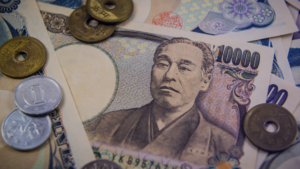Japanese lawmaker Ichiro Akazawa expressed concerns over the yen’s depreciation, stating that its impact on the real economy is becoming more evident. The prolonged weakness in Japan’s currency has raised challenges for businesses and households, intensifying discussions on potential policy responses.
The yen’s slide has led to rising import costs, particularly for energy and raw materials, squeezing corporate profits and household purchasing power. While a weaker currency traditionally supports exporters, the benefits have been offset by higher input costs and cautious consumer spending.
Akazawa’s comments come amid increased speculation over Bank of Japan’s (BoJ) monetary policy stance. Despite market expectations for an eventual policy shift, the central bank has remained committed to its ultra-loose approach, keeping interest rates in negative territory.
Policymakers are now facing growing pressure to address currency-driven inflation, as businesses struggle with price stability and wage growth remains sluggish. Government officials have signaled readiness to intervene if volatility escalates, though concrete actions remain uncertain.
With global markets closely watching Japan’s economic trajectory, the yen’s performance will likely be influenced by U.S. Federal Reserve decisions, domestic policy adjustments, and shifts in risk sentiment. Any signs of tightening from the BoJ could trigger sharp currency movements.
Investors are awaiting further clarity from policymakers, as Japan navigates the delicate balance between economic recovery and currency stability. Market participants will monitor upcoming economic data for indications of how authorities plan to manage the yen’s weakness moving forward.













